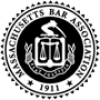Combined Experience
Workers Compensation Litigation
Workers Compensation Litigation
What happens when a workers comp insurer fights your claim? This happens quite often.
Following a workplace injury, the employer must notify the workers comp insurer, and then, the comp insurer must respond one way or another. Often, the comp insurer will accept the claim, and begin paying the various benefits due depending upon the nature of the injury. However, equally often, the insurer will deny the claim, as they are legally allowed to do this. The question then becomes what to do for the injured worker.
The short answer is that a claim for benefits must be filed at the Department of Industrial Accidents. This is, essentially, the workers comp litigation process. There are 5 locations throughout Massachusetts, and where your case his handled depends on where you live.
The Claims Process
The claims process starts by filing a claim at the DIA. Once the claim is in the system, the matter will then be scheduled for a conciliation.
Conciliation
The conciliation, pursuant to Section 10, is the first event following the filing of a claim for benefits. This event usually happens within 2 weeks of the claim being filed. At the conciliation, the parties (usually the employee’s attorney and the insurer’s attorney) will meet with a conciliator, who is a mediator or sorts. Ordinarily, the conciliation will be done in person at one of the DIA locations. Due to recent events involving Covid 19, however, conciliations are being handled virtually through video conferencing.
At the conciliation, the Employee’s attorney will explain the nature of the claim. The Insurer will usually then explain any defenses to the claim. If an agreement cannot be reached at this level, the matter will be “sent forward.” This means that the case will be assigned to a Judge and scheduled for a conference.
Often times, agreements can be reached at this level. Conciliators will usually give the parties additional time to work out any agreement.
Conference
A Conference, under Section 10A, is the next event following the conciliation. If the case can not be worked out, or adjusted, at the conciliation, the case needs to get assigned to a Judge.
At the conference, the parties, along with the Employee, will attend. The conference is held at one of the DIA locations. (Again, Covid 19 protocols change rather frequently, and the conference may also be held virtually).
The conference is usually a relatively brief event, whereby the parties present their case to the Judge, along with supporting medical documents. Following the conference, the Judge will then issue an order, pursuant to Section 10A. This is known as a temporary order, as one or both parties can appeal such order. The order, however, does remain in place and will go into effect despite appeals by one or both sides.
On appeal, the matter then moved on to the hearing level.
Hearing
Following a conference, if one of both parties appeal the Judge’s order, the matter proceeds to the hearing level pursuant to Section 11.
Generally, the appeal will involve a medical dispute. This means, usually, that the employee’s doctor feels, for example, that the injured worker is disabled in some way, or needs medical treatment, and the insurer’s doctor disagrees. In cases like this involving a medical dispute, the employee must then see an Impartial Physician, pursuant to Section 11A. This is generally scheduled within a couple of months following the conference.
Once the report of the impartial physician is done, the case then gets put into a queue to be scheduled for a hearing.
The hearing is a essentially a trial, whereby witnesses are called to testify. This almost always includes the injured worker. Other witnesses to be called might be vocational experts, private investigators, or witnesses to the incident itself. Once all testimony is taken, the Judge will then weigh all the evidence and write a decision.
Absent an appeal of the Judge’s decision, that decision is final.
Appeal Process
As mentioned above, if the Judge’s decision is not appealed, that decision becomes final.
However, one or both parties may appeal the Judge’s decision to the Department of Industrial Accidents Reviewing Board, pursuant to Section 11C. These appeals are somewhat common. An appeal is really only done if the Judge made some sort of legal or procedural error in his or her decision. The Reviewing Board may then take a variety of corrective actions, such as sending the case back to the Judge to make corrections, upholding the decision, or reversing it outright.
It is noteworthy to know that even a RB decision may also get appealed to Superior Court. Such appeals are infrequent and not very common, and generally involve new issues of law or procedure.
Summation
As you can see, this is a rather complex litigation process that can and often does surround even a simple injury at work. Each level is complex in it’s own right and only emphasizes the need to have an experienced Massachusetts Worker Comp Lawyer at your side. An experienced comp lawyer can ensure that your rights are protected throughout this lengthy and complex process.
At Troupe Law Office, we have been actively representing injured workers, as well as their families, in workers compensation cases for 50 years. We are experts in Massachusetts Workers Comp Law and will fight to see that your rights are protected.
Visit our website for more information.








